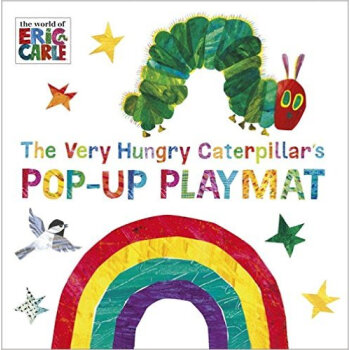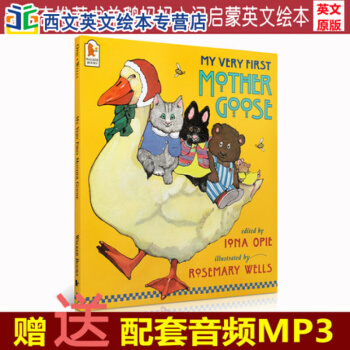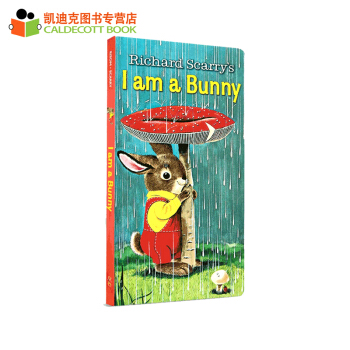![Gone with the Wind飘/乱世佳人 英文原版 [平装] [NA--NA]](https://pic.windowsfront.com/19029112/9607c9bb-f271-40fa-9e51-66db08b989d9.jpg)

具体描述
编辑推荐
适读人群 :NA--NA美国女作家玛格丽特·米切尔发表过的惟一小说就是这部《飘》。小说一九三六年问世以来,一直畅销不衰,不仅在美国,而且在全世界都受到广大读者的喜爱。现已公认是以美国南北战争为背景的爱情小说的经典之作。
《飘》小说以亚特兰大以及附近的一个种植园为故事场景,描绘了内战前后美国南方人的生活。作品刻画了那个时代的许多南方人的形象,占中心位置的人物斯佳丽、瑞特、阿希礼、玫兰妮等人是其中的典型代表。他们的习俗礼仪、言行举止、精神观念、政治态度,以至于衣着打扮等等,在小说里都叙述得十分详尽。可以说小说成功地再现了那个时代美国南方这个地区的社会生活。
内容简介
Margaret Mitchell's epic novel of love and war won the Pulitzer Prize and went on to give rise to two authorized sequels and one of the most popular and celebrated movies of all time.Many novels have been written about the Civil War and its aftermath. None take us into the burning fields and cities of the American South as Gone With the Wind does, creating haunting scenes and thrilling portraits of characters so vivid that we remember their words and feel their fear and hunger for the rest of our lives.
In the two main characters, the white-shouldered, irresistible Scarlett and the flashy, contemptuous Rhett, Margaret Mitchell not only conveyed a timeless story of survival under the harshest of circumstances, she also created two of the most famous lovers in the English-speaking world since Romeo and Juliet.
玛格丽特·米切尔短暂的一生并未留下太多的作品,但只一部《飘》足以奠定她在世界文学史中不可动摇的地位。《飘》以南北战争时期南方动乱的社会现实为背景,以“乱世佳人”斯佳丽为主线,描写了几对青年的爱情纠葛,具有浓厚的浪漫主义色彩。自问世以来,这部作品已成为享誉世界的爱情小说,并被拍成电影。
作者简介
Margaret Mitchell(1900 - 1949), born in Atlanta in 1900, Margaret Mitchell grew up surrounded by relatives who told endless tales of the Civil War and Reconstruction. She knew those who were relics of a de-stroyed culture, and those who had put aside gentility for survival. Her mother instilled in her that education was her only security. She attended Smith College but had to come home when her mother fell ill. After her mother's death, Margaret resolved that she had to make a home for her father and brother, so she left college and returned to Atlanta.In 1923, she became a feature writer for the Atlanta Journal, and in 1925, she married John Marsh, a public relations officer for Georgia Power. She found most of her assignments unfulfilling, and she soon left to try writing fiction more to her own taste. Her own harshest critic, she would not try to get her work published. She began to write Gone with the Wind in 1926, while recovering from an automobile accident. Over the next eight years she painstakingly researched for historical accuracy.
She accumulated thousands of pages of manuscript. Here is how she later described her life's labor: "When I look back on these last years of struggling to find time to write between deaths in the family, illness in the family and among friends which lasted months and even years, childbirths (not my own), divorces and neuroses among friends, my own ill health and four fine auto accidents ... it all seems like a nightmare. I wouldn't tackle it again for anything. Just as soon as I sat down to write, somebody I loved would decide to have their gall-bladder removed. ... "
In 1934, an editor from Macmillan's Publishers came to Atlanta seeking new authors. He was referred to John and Margaret Marsh as people who knew Atlanta's literary scene. She steered him to several prospects, but didn't mention her own work. A friend told him that she was writing a novel, but she denied it. On the night before he was to leave Atlanta, she appeared at his hotel-room door with her still imperfect, mountainous manuscript and left it with him for better or for worse.
玛格丽特·米切尔(1900-1949),出生在美国佐治亚州亚特兰大市的一个律师家庭。她的父亲曾经是亚特兰大市的历史学会主席。在南北战争期间,亚特兰大曾于1864年落入北方军将领舒尔曼之手。小时候,玛格丽特经常听到周围的人谈论南北战争,这对她以后的写作产生了重要影响。
1922年,玛格丽特开始用昵称“佩吉”为《亚特兰大日报》撰稿,大量报道见诸报端,其中有一组便是玛格丽特为过去南方邦联将领写的专题报道。1926年,腿部负伤的玛格丽特不得不辞去报社的工作,在丈夫的鼓励下开始致力于创作。当26岁的玛格丽特决定创作一部关于南北战争的小说时,亚特兰大自然就成了小说的背景。
精彩书评
"Beyond a doubt one of the most remarkable first novels produced by an American writer. It is also one of the best." -- The New York Times"The best novel to have ever come out of the South...it is unsurpassed in the whole of American writing." -- The Washington Post
"Fascinating and unforgettable! A remarkable book, a spectacular book, a book that will not be forgotten!" -- Chicago Tribune
“Gone with the Wind is one of those rare books that we never forget. We read it when we're young and fall in love with the characters, then we watch the film and read the book again and watch the film again and never get tired of revisiting an era that is the most important in our history. Rhett and Scarlet and Melanie and Ashley and Big Sam and Mammy and Archie the convict are characters who always remain with us, in the same way that Twain's characters do. No one ever forgets the scene when Scarlet wanders among the wounded in the Atlanta train yard; no one ever forgets the moment Melanie and Scarlet drag the body of the dead Federal soldier down the staircase, a step at a time. Gone with the Wind is an epic story. Anyone who has not read it has missed one of the greatest literary experiences a reader can have.”
-- James Lee Burke, bestselling author of The Tin Roof Blowdown
精彩书摘
Chapter Twenty-fiveThe next morning Scarlett's body was so stiff and sore from the long miles of walking and jolting in the wagon that every movement was agony. Her face was crimson with sunburn and her blistered palms raw. Her tongue was furred and her throat parched as if flames had scorched it and no amount of water could assuage her thirst. Her head felt swollen and she winced even when she turned her eyes. A queasiness of the stomach reminiscent of the early days of her pregnancy made the smoking yams on the breakfast table unendurable, even to the smell. Gerald could have told her she was suffering the normal aftermath of her first experience with hard drinking but Gerald noticed nothing. He sat at the head of the table, a gray old man with absent, faded eyes fastened on the door and head cocked slightly to hear the rustle of Ellen's petticoats, to smell the lemon verbena sachet.
As Scarlett sat down, he mumbled: "We will wait for Mrs. O'Hara. She is late." She raised an aching head, looked at him with startled incredulity and met the pleading eyes of Mammy, who stood behind Gerald's chair. She rose unsteadily, her hand at her throat and looked down at her father in the morning sunlight. He peered up at her vaguely and she saw that his hands were shaking, that his head trembled a little.
Until this moment she had not realized how much she had counted on Gerald to take command, to tell her what she must do, and now -- Why, last night he had seemed almost himself. There had been none of his usual bluster and vitality, but at least he had told a connected story and now -- now, he did not even remember Ellen was dead. The combined shock of the coming of the Yankees and her death had stunned him. She started to speak, but Mammy shook her head vehemently and raising her apron dabbed at her red eyes.
"Oh, can Pa have lost his mind?" thought Scarlett and her throbbing head felt as if it would crack with this added strain. "No, no. He's just dazed by it all. It's like he was sick. He'll get over it. He must get over it. What will I do if he doesn't? -- I won't think about it now. I won't think of him or Mother or any of these awful things now. No, not till I can stand it. There are too many other things to think about -- things that can be helped without my thinking of those I can't help."
She left the dining room without eating, and went out onto the back porch where she found Pork, barefooted and in the ragged remains of his best livery, sitting on the steps cracking peanuts. Her head was hammering and throbbing and the bright sunlight stabbed into her eyes. Merely holding herself erect required an effort of will power and she talked as briefly as possible, dispensing with the usual forms of courtesy her mother had always taught her to use with negroes.
She began asking questions so brusquely and giving orders so decisively Pork's eyebrows went up in mystification. Miss Ellen didn't never talk so short to nobody, not even when she caught them stealing pullets and watermelons. She asked again about the fields, the gardens, the stock, and her green eyes had a hard glaze which Pork had never seen in them before.
"Yas'm, dat hawse daid, layin' dar whar Ah tie him wid his nose in de water bucket he tuhned over. No'm, de cow ain' daid. Din' you know? She done have a calf las' night. Dat why she beller so."
"A fine midwife your Prissy will make," Scarlett remarked caustically. "She said she was bellowing because she needed milking."
"Well'm, Prissy ain' fixing to be no cow midwife, Miss Scarlett," Pork said tactfully. "An' ain' no use quarrelin' wid blessin's, cause dat calf gwine ter mean a full cow an' plen'y buttermilk fer de young Misses, lak dat Yankee doctah say dey'd need."
"All right, go on. Any stock left?"
"No'm. Nuthin' 'cept one ole sow an' her litter. Ah driv dem inter de swamp de day de Yankees come, but de Lawd knows how we gwine get dem. She mean, dat sow."
"We'll get them all right. You and Prissy can start right now hunting for her."
Pork was amazed and indignant.
"Miss Scarlett, dat a fe'el han's bizness. Ah's allus been a house nigger."
A small fiend with a pair of hot tweezers plucked behind Scarlett's eyeballs.
"You two will catch the sow -- or get out of here, like the field hands did."
Tears trembled in Pork's hurt eyes. Oh, if only Miss Ellen were here! She understood such niceties and realized the wide gap between the duties of a field hand and those of a house nigger.
"Git out, Miss Scarlett? Whar'd Ah git out to, Miss Scarlett?"
"I don't know and I don't care. But anyone at Tara who won't work can go hunt up the Yankees. You can tell the others that too."
"Yas'm."
"Now, what about the corn and the cotton, Pork?"
"De cawn? Lawd, Miss Scarlett, dey pasture dey hawses in de cawn an' cah'ied off whut de hawses din' eat or spile. An' dey driv dey cannons an' wagons 'cross de cotton till it plum ruint, 'cept a few acres over on de creek bottom dat dey din' notice. But dat cotton ain' wuth foolin' wid, 'cause ain' but 'bout three bales over dar."
Three bales. Scarlett thought of the scores of bales Tara usually yielded and her head hurt worse. Three bales. That was little more than the shiftless Slatterys raised. To make matters worse, there was the question of taxes. The Confederate government took cotton for taxes in lieu of money, but three bales wouldn't even cover the taxes. Little did it matter though, to her or the Confederacy, now that all the field hands had run away and there was no one to pick the cotton.
"Well, I won't think of that either," she told herself. "Taxes aren't a woman's job anyway. Pa ought to look after such things, but Pa -- I won't think of Pa now. The Confederacy can whistle for its taxes. What we need now is something to eat."
"Pork, have any of you been to Twelve Oaks or the MacIntosh place to see if there's anything left in the gardens there?"
"No, Ma'm! Us ain' lef' Tara. De Yankees mout git us."
"I'll send Dilcey over to MacIntosh. Perhaps she'll find something there. And I'll go to Twelve Oaks."
"Who wid, chile?"
"By myself. Mammy must stay with the girls and Mr. Gerald can't -- "
Pork set up an outcry which she found infuriating. There might be Yankees or mean niggers at Twelve Oaks. She mustn't go alone.
"That will be enough, Pork. Tell Dilcey to start immediately. And you and Prissy go bring in the sow and her litter," she said briefly, turning on her heel.
Mammy's old sunbonnet, faded but clean, hung on its peg on the back porch and Scarlett put it on her head, remembering, as from another world, the bonnet with curling green plume which Rhett had brought her from Paris. She picked up a large split-oak basket and started down the back stairs, each step jouncing her head until her spine seemed to be trying to crash through the top of her skull.
The road down to the river lay red and scorching between the ruined cotton fields. There were no trees to cast a shade and the sun beat down through Mammy's sunbonnet as if it were made of tarlatan instead of heavy quilted calico, while the dust floating upward sifted into her nose and throat until she felt the membranes would crack if she spoke. Deep ruts and furrows were cut into the road where horses had dragged heavy guns along it and the red gullies on either side were deeply gashed by the wheels. The cotton was mangled and trampled where cavalry and infantry, forced off the narrow road by the artillery, had marched through the green bushes, grinding them into the earth. Here and there in road and fields lay buckles and bits of harness leather, canteens flattened by hooves and caisson wheels, buttons, blue caps, worn socks, bits of bloody rags, all the litter left by a marching army.
She passed the clump of cedars and the low brick wall which marked the family burying ground, trying not to think of the new grave lying by the three short mounds of her little brothers. Oh, Ellen -- She trudged on down the dusty hill, passing the heap of ashes and the stumpy chimney where the Slattery house had stood, and she wished savagely that the whole tribe of them had been part of the ashes. If it hadn't been for that nasty Emmie, who'd had a bastard brat by their overseer -- Ellen wouldn't have died.
She moaned as a sharp pebble cut into her blistered foot. What was she doing here? Why was Scarlett O'Hara, the belle of the County, the sheltered pride of Tara, tramping down this rough road almost barefoot? Her little feet were made to dance, not to limp, her tiny slippers to peep daringly from under bright silks, not to collect sharp pebbles and dust. She was born to be pampered and waited upon, and here she was, sick and ragged, driven by hunger to hunt for food in the gardens of her neighbors.
At the bottom of the long hill was the river and how cool and still were the tangled trees overhanging the water! She sank down on the low bank, and stripping off the remnants of her slippers and stockings, dabbled her burning feet in the cool water. It would be so good to sit here all day, away from the helpless eyes of Tara, here where only the rustle of leaves and the gurgle of slow water broke the stillness. But reluctantly she replaced her shoes and stockings and trudged down the bank, spongy with moss, under the shady trees. The Yankees had burned the bridge but she knew of a footlog bridge across a narrow point of the stream a hundred yards below. She crossed it cautiously and trudged uphill the hot half-mile to Twelve Oaks.
There towered the twelve oaks, as they had stood since Indian days, but with their leaves brown from fire and the branches burned and scorched. Within their circle lay the ruins of John Wilkes' house, the charred remains of that once stately home which had crowned the hill in white-columned dignity. The deep pit which had been the cellar, the blackened field-stone foundations and two mighty chimneys marked the site. One long column, half-burned, had fallen across the lawn, crushing the cape jessamine bushes.
前言/序言
用户评价
《飘》的英文原版,给我带来的不仅仅是阅读的快感,更是一种对历史与人性的深刻洞察。我仿佛亲身经历了美国内战的残酷,看到了一个时代的结束,以及一个新时代的艰难开启。斯嘉丽,这个被无数人讨论过的女性,在英文原著中,她的形象更加立体和复杂。她的不屈服,她的精明,甚至她的自私,都随着字里行间的流淌而愈发清晰。我看到她在最绝望的时候,如何咬牙坚持,如何利用一切资源去生存。那种强大的生命力,在任何翻译版本中都难以完全捕捉。而白瑞德,他的出现,给斯嘉丽这个看似坚不可摧的世界,带来了巨大的冲击。他们的关系,是爱,是恨,是理解,是误解,纠缠不清,却又充满了吸引力。英文的叙述,在描绘这些复杂情感时,显得尤为精准和细腻。我能感受到白瑞德的嘲讽背后隐藏的深情,也能理解斯嘉丽对他的依赖与抗拒。故事中的南方社会,从繁荣到凋敝,在作者的笔下,被描绘得栩栩如生。那些曾经的辉煌,那些逝去的优雅,都化为了一种淡淡的忧伤,弥漫在整个故事中。这本书,让我看到了在时代变迁的大背景下,个体命运的渺小与伟大,以及人性中那些永恒不变的闪光点。
评分读完《飘》的英文原版,内心久久不能平静。这是一次沉浸式的历史体验,更是一场关于女性生命力与时代洪流的深刻对话。英文原版带来的原汁原味,让我更能体会到斯嘉丽骨子里那股不服输的劲头,以及梅兰妮那种超越时空的善良与坚韧。翻开书页,字里行间仿佛流淌着南方特有的粘稠空气,弥漫着玫瑰与泥土的气息,耳边还隐约回响着那哀伤而壮阔的命运挽歌。我试图去理解斯嘉丽的每一个决定,即便有时显得自私甚至残酷,但回望那个风雨飘摇的时代,在生存与尊严之间,她做出了太多艰难的选择。她的爱恨情仇,她的野心与迷茫,都随着战火的硝烟与重建的希望而起伏跌宕。而白瑞德,那个带着嘲讽与深情的男人,他的出现更是为故事增添了无限的复杂性。他的洞察,他的无奈,他对斯嘉丽既爱又恨的纠缠,都让我反复揣摩。这本书不仅仅是关于爱情,更是关于一个女人如何在最艰难的时刻,凭着一己之力,去抓住生命中的每一缕阳光,去塑造自己的命运。英文的韵律感,词语的精准描绘,让我能更细致地感受到人物内心的波动,以及那个逝去的南方社会微妙的社会关系。这本书,值得反复品读,每次都能从中汲取新的力量与思考。
评分这次能够阅读《飘》的英文原版,对我来说是一次意义非凡的体验。我一直对那个风起云涌的年代,以及那个复杂而迷人的女性形象斯嘉丽·奥哈拉充满了好奇。英文的原著,让我得以绕过翻译的桥梁,直接与作者的文字对话。斯嘉丽在英文中的每一次叹息,每一次宣言,都带着一股不容置疑的生命力。她的“Tomorrow is another day”不仅仅是一句口号,更是一种近乎顽固的生存哲学,在那个几乎被战争摧毁的世界里,支撑着她前行。我沉浸在塔拉庄园的繁华与衰败之间,感受着南方贵族阶层在社会巨变中的挣扎与失落。那些华丽的舞会,那些彬彬有礼的交谈,在战火降临后,都变得如此苍白无力。而白瑞德,这个游走在规则之外的男人,他的出现如同给斯嘉丽的生活带来了一股不羁的风,也给故事增添了更多的戏剧张力。他的睿智,他的世故,以及他对斯嘉丽那份难以言喻的感情,都让这个角色充满了魅力。英文的叙述,将人物的内心世界描绘得细致入微,让我们能够更深刻地理解他们行为背后的动机,以及他们在历史洪流中的无奈与抗争。这本书,让我看到了一个女人如何在一个颠沛流离的时代,用自己的方式去寻找希望,去定义自己的价值。
评分《飘》英文原版带给我的震撼,是多维度的。它不仅仅是一个关于爱情故事的宏大叙事,更是一部关于美国内战与重建时期南方社会风貌的史诗级画卷。英文的叙述方式,尤其在描绘战争的残酷与社会崩溃的景象时,显得尤为真实而有力。我能感受到炮火撕裂天空的震撼,感受到饥饿与绝望笼罩下人们的眼神,更能体会到曾经富足的庄园如何在瞬间化为废墟。斯嘉丽,这个极具争议的角色,在英文的语境下,她的顽强、她的虚荣、她的狡黠,都被刻画得入木三分。我开始理解,在那样一个男权至上、战乱频仍的环境中,她为了生存所付出的代价,以及她内心深处对安全与归属感的极度渴望。她不是一个完美的英雄,她有缺点,有执念,但正是这种不完美,让她在历史的洪流中显得如此真实,如此具有生命力。而故事中的其他人物,如温文尔雅的梅兰妮,风流不羁的白瑞德,他们各自的命运都与这个时代的变迁紧密相连,共同构成了这部作品宏大的历史图景。阅读英文原版,让我有机会直接触碰到作者对那个时代的观察与反思,去感受语言本身所蕴含的厚重感与感染力。每一次翻页,都像是在穿越时空,与那些鲜活的人物一同经历那段跌宕起伏的历史。
评分拿到《飘》的英文原版,感觉就像是捧着一段历史的真实脉络。我一直对斯嘉丽这个角色充满着复杂的情感,而原版英文更是让我能直接感受到她身上那种原始的生命力。她的那些看似任性、看似不顾一切的行为,在英文的语境下,都带着一种不容置疑的决心。她如何在战火纷飞的年代,为了保护塔拉,为了生存,展现出惊人的毅力和智慧,这是最打动我的地方。英文的词句,仿佛能直接触及到人物内心的最深处,让我能更清晰地理解斯嘉丽的每一个选择,她的恐惧,她的渴望,她的野心。白瑞德的出现,为这个故事增添了太多的色彩。他的玩世不恭,他的深情,他的洞察一切,都让这个角色充满了神秘感和魅力。他们的每一次对话,都充满了火花,充满了暗流涌动的情感。我在这本书中,看到了一个时代的兴衰,看到了一个社会的剧变,也看到了一个女人在绝境中如何顽强地生长。英文的叙述,让那个逝去的南方社会,那些贵族们的风采,那些战火的残酷,都变得如此真实。这不仅仅是一本小说,更是一部关于生存、关于爱、关于命运的宏大史诗,而英文原版,让我得以最直接地去感受它的厚重与魅力。
评分不是普通书的样子,窄许多,看着别扭,纸质也不是很好。
评分此用户未及时填写评价内容,系统默认好评!
评分E额有点忒旧啦……
评分书设计的好,正版
评分很不错
评分书挺厚的,快有1500页了,慢慢看吧,就是封面不去费雯丽的那本。
评分开本很小,非常轻,但是太厚了
评分可以,纸很薄
评分很好很精致的,小孩子很喜欢。
相关图书
本站所有内容均为互联网搜索引擎提供的公开搜索信息,本站不存储任何数据与内容,任何内容与数据均与本站无关,如有需要请联系相关搜索引擎包括但不限于百度,google,bing,sogou 等
© 2026 book.coffeedeals.club All Rights Reserved. 静流书站 版权所有

![The Very Hungry Caterpillar [Board book][饥肠辘辘的毛毛虫] 英文原版 [平装] [1岁及以上] pdf epub mobi 电子书 下载](https://pic.windowsfront.com/19043692/6e4701d2-34dc-431f-8fc0-726b9d789f02.jpg)
![The Very Hungry Caterpillar's Favorite Words Board book 好饿的毛毛虫最爱单词 英文原版 [平装] [3-5岁] pdf epub mobi 电子书 下载](https://pic.windowsfront.com/19043575/0d4f0395-07b5-472a-94b2-a74abbf69926.jpg)
![The Very Hungry Caterpillar Board book饥肠辘辘的毛毛虫 英文原版 [平装] [1岁及以上] pdf epub mobi 电子书 下载](https://pic.windowsfront.com/19043676/850e85d2-41f1-4b5c-b2d0-b2e6976cb9f8.jpg)
![Geronimo Stilton #55: The Golden Statue Plot [平装] [7岁及以上] pdf epub mobi 电子书 下载](https://pic.windowsfront.com/19286688/rBEhVVIUhbgIAAAAAADZAEo9oMMAACVIwAk96UAANkY563.jpg)
![The Very Hungry Caterpillar's Buggy Book 好饿的毛毛虫 英文原版 [精装] [0-3岁] pdf epub mobi 电子书 下载](https://pic.windowsfront.com/19028549/cdd122bf-6227-49bc-9028-c2a008fc6ef2.jpg)

![The Napping House [平装] [4岁及以上] pdf epub mobi 电子书 下载](https://pic.windowsfront.com/19234891/58ead7b9N84501a42.jpg)
![The Art of Big Hero 6超能陆战队 动画设定集 英文原版 [平装] [3-10岁] pdf epub mobi 电子书 下载](https://pic.windowsfront.com/19531068/554b0767N71d08838.jpg)
![Oliver Twist[雾都孤儿] 英文原版 [平装] pdf epub mobi 电子书 下载](https://pic.windowsfront.com/19017081/rBEhVVKKyqgIAAAAAA3GB_pqKMYAAFygQHTFdIADcYf836.jpg)
![Bizzy Bear: Do-It-Yourself Day 英文原版 [平装] [00--03] pdf epub mobi 电子书 下载](https://pic.windowsfront.com/19691779/5a9f5f70N9e9a72c6.jpg)

![The Complete Short Stories of Mark Twain马克·吐温短篇小说集 英文原版 [平装] [NA--NA] pdf epub mobi 电子书 下载](https://pic.windowsfront.com/19017210/rBEGDU-yKfcIAAAAAAEFNKC9pwEAAA7-QBKJ_gAAQVM368.jpg)
![Beauty and the Beast 美女与野兽 [精装] [04--08] pdf epub mobi 电子书 下载](https://pic.windowsfront.com/19662494/5af94fa7N4c7e91fc.jpg)

![Grasshopper on the Road (I Can Read, Level 2)蚱蜢旅行记 英文原版 [平装] [4-8岁] pdf epub mobi 电子书 下载](https://pic.windowsfront.com/19004940/550be659N6fa2d78b.jpg)

![My Weird School Collection: Books 1 to 4疯狂学校合集(1-4) 英文原版 [平装] [6-10岁] pdf epub mobi 电子书 下载](https://pic.windowsfront.com/19004607/550be590N48f8cacb.jpg)
![I Can Read 50th Anniversary Box SetI Can Read 50周年纪念合集,共4册 英文原版 [平装] [4-8岁] pdf epub mobi 电子书 下载](https://pic.windowsfront.com/19004285/f2be344f-b474-4656-aaa6-d6f6f22a2e9e.jpg)
![Divergent Trilogy boxed Set (books 1-3)分歧者三部曲套装(1-3册) 英文原版 [平装] pdf epub mobi 电子书 下载](https://pic.windowsfront.com/19477485/53a01830Ne672578a.jpg)
![The Very Hungry Caterpillar Giant 饥肠辘辘的毛毛虫 英文原版 [精装] [1岁及以上] pdf epub mobi 电子书 下载](https://pic.windowsfront.com/19043212/27319429-04df-4098-a7df-98e72785cc1e.jpg)